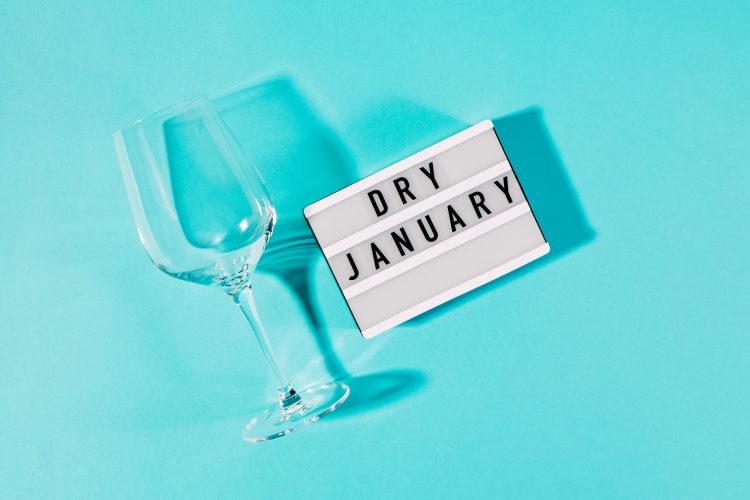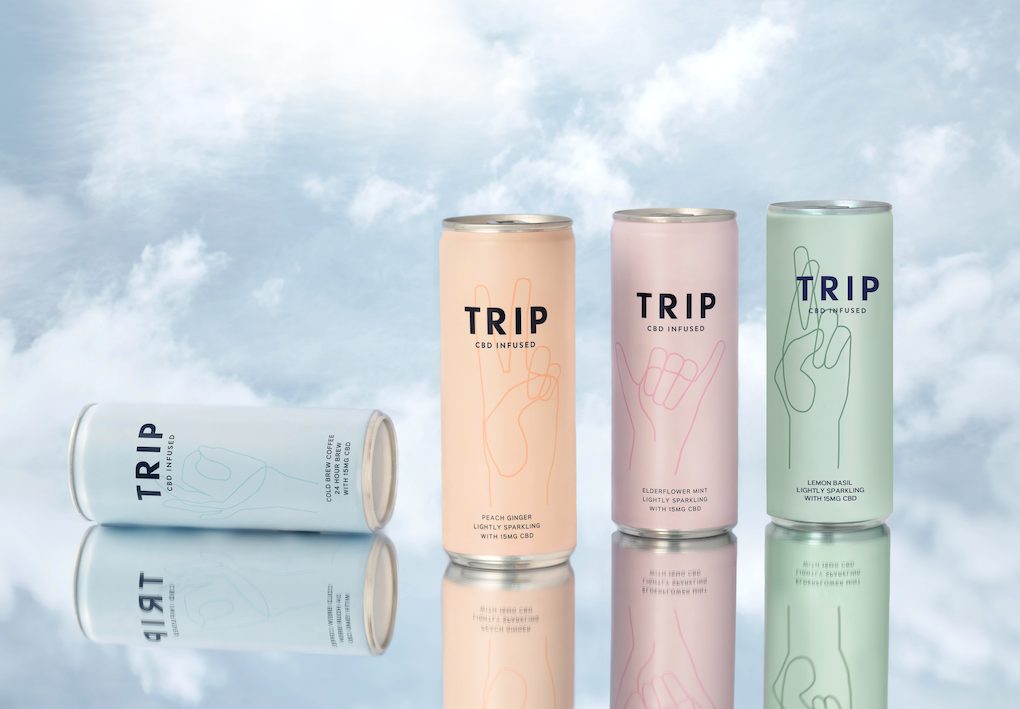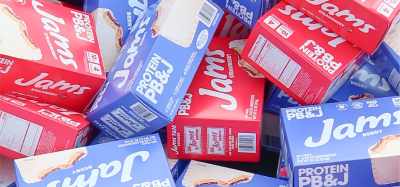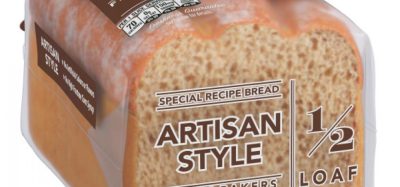Dry January: More than just a campaign
- Like
- Digg
- Del
- Tumblr
- VKontakte
- Buffer
- Love This
- Odnoklassniki
- Meneame
- Blogger
- Amazon
- Yahoo Mail
- Gmail
- AOL
- Newsvine
- HackerNews
- Evernote
- MySpace
- Mail.ru
- Viadeo
- Line
- Comments
- Yummly
- SMS
- Viber
- Telegram
- Subscribe
- Skype
- Facebook Messenger
- Kakao
- LiveJournal
- Yammer
- Edgar
- Fintel
- Mix
- Instapaper
- Copy Link
Posted: 8 January 2024 | Grace Galler | No comments yet
With 8.5 million consumers taking part in Dry January this year, New Food’s Grace Galler looks at the origins of the campaign and how the no/low alcohol market has shifted in recent years.


It may be cold and blustery, but that hasn’t put a dampener on the fact eight and a half million people have pledged to take part in Dry January this year.
Started in 2013 by Alcohol Change UK (formerly known as Alcohol Concern), the Dry January Campaign encourages adult consumers to stop drinking alcohol for 31 days at the beginning of the year as a way to improve their physical and mental health.
Between 2017-2022 the alcoholic drinks industry grew by 12.4 percent, suggesting that the global demand for alcohol is only increasing with time. However, with no and low beverages becoming popular in recent years, UK supermarket giant Tesco predicted that during December 2023 “shoppers [were] set to create record demand for no and low alcohol beer, wines and spirits [at] Christmas”.
This prediction came after Tesco shared it “saw its strongest ever sales in 2023 with high demand sustained across the year”, suggesting a shift in consumer demand.
Now, millions across the nation are omitting alcohol from their diets to experience a “dry” month. If not cutting alcohol consumption completely, many might be taking part in “Damp January”, whereby they will consciously reduce their alcohol intake for several weeks as a way to kickstart their 2024.
Where did it all begin?
Looking at the history of the campaign, founder Emily Robinson shared that the idea came about when she decided to have a break from drinking alcohol while training for a marathon some 11 years ago.
Since 2016, the NHS highlights that UK guidelines have focused on regular weekly consumption, with a recommendation that men and women should not normally consume more than 14 units of alcohol a week. This includes some days of the week where no alcohol is consumed at all.
However, results from a Health Survey for England revealed that 79 percent of participants reported that they had drunk alcohol in the last 12 months, with 49 percent reporting that they drank alcohol at least once a week. In fact, the survey revealed that those aged 16 to 24 were least likely to drink at least once a week (31 percent) and those aged between 55 and 64 years old were the most likely to do so (59 percent).


This year an estimated 8.5 million consumers that typically drink alcohol in the UK are participating in Dry January
Compared to other countries, alcohol consumption per capita (APC) (i.e. litres of pure alcohol per person [15+ years] per year) was found to be 11.4 litres, equivalent to around 175 grams or 22 units of alcohol per week, in the UK, a figure above the NHS’ recommended guidelines. Drinkaware notes that this was “slightly above the 11.3 litre per capita consumption of the European Union countries” including Norway and Switzerland.
Explaining alcohol consumption in the UK, Robinson shared: “In British culture there is a lot of talk about drinking… I was hoping through the dry January conversation we could have a different conversation about alcohol.”
On the topic of shifting mindsets, and with millions of consumers set to make a change to their drinking habits this month, it’s evident that the era of conscious consumption and wellness-centric choices is firmly taking root in the food and beverage industry.
Why opt for a no/low drinking approach?
With one in four people planning on reducing the amount they drink in 2024, an Opinium poll carried out for this year’s Dry January campaign also revealed that 16 percent of UK adults plan on taking a break from alcohol this month.
With more and more no/low alcohol alternatives flooding in market, including the likes of Lyres’, Lucky Saint and TRIP, there appears to be a real shift in innovation from the beverage sector when it comes to putting various drink options on supermarket shelves, as well as on menus at hospitality venues.
But as well as trying something new for 2024, what are the benefits cutting back on alcohol? According to research carried out by Royal Free Hospital and published in the British Medical Journal, a month off drinking alcohol lowers blood pressure, reduces diabetes risk, lowers cholesterol and reduces levels of cancer-related proteins in the blood.
However Alcohol Change UK shared that “the real magic happens when Dry January is over” as it believes the campaign “helps people to drink more healthily year-round”. In fact, University of Sussex research found that six months after Dry January more than 70 percent of people who take on the month with Alcohol Change UK’s Try Dry app or coaching emails are still drinking more healthily.
“The fact that the numbers coming to us every year grow” Dr Richard Piper, Chief Executive of Alcohol Change UK,” said Dr Richard Piper, Chief Executive of Alcohol Change UK.
A different kind of calm
With 57 percent of the Opinium surveyed group claiming that they want to cut down on the amount of alcohol they consume in 2024, what are some trail-blazing alternatives that could be filling glasses across the nation?
Back in 2023, New Food shared the founding story of TRIP, a CBD infused beverage brand that previously became the UK’s fastest growing soft drinks brand.
Fast forward a year, the company is the official soft drinks sponsor of Dry January after a year of success, whereby the company became the fastest growing soft drinks brand of 2023.


TRIP was launched by Olivia Ferdi and Daniel Khoury after a personal experience with CBD, and first hit supermarket shelves in 2019
A hit with young adults, TRIP claims that one in two Gen Z consumers have had a CBD drink as an alcohol-alternative. In fact is stated that its success signifies a shift from an alcohol-first consumer mentality to relaxing and unwinding, with 59 percent of TRIP’s DTC customers buying TRIP as an alcohol alternative.
“CBD can be an exciting part in how we socialise. Fed up with compromising on flavour or feeling? Functional drinks can now help you unwind without the next day hangxiety,” said wellness expert and Co-Founder of TRIP Olivia Ferdi.
For Dry January 2024, TRIP is partnering with Roman Kemp, a Radio DJ, TV presenter and vocal advocate for looking after your mental health. Speaking on the partnership, Ferdi shared: “Roman was a natural choice to partner with to promote our Dry January campaign, which is encouraging people to unwind naturally with TRIP and avoid the dreaded alcohol hangiexty.”
However it isn’t just TRIP that offers consumers alcohol-free alternatives, with 2023 being a year where many beverage brands dipped their toes in the world of no/low. Though Mintel previously observed that growth had slowed slightly in the category, and estimated that the market would increase by a further 11.2 percent in 2023, many in the industry may be wondering how the category will take shape over the course of the next 12 months.
More than just a month
Prevalent, popular and promising. Three words that seem to describe the no/low alcohol category. With search rates for the term “Dry January” peaking in December 2023, the evolution of Dry January stands as a testament to a shifting consumer mindset within the food and beverage industry.
As millions engage in a month-long abstinence from alcohol, the surge in no and low-alcohol alternatives reflects an industry adapting to changing preferences, with market giants like Tesco witnessing unprecedented demand for these options.
As the beverage industry continually innovates, embracing a no/low-alcohol landscape, it not only taps into profitability but also responds to a growing consumer desire for healthier choices. It appears Dry January may have started as a month-long trend but it seems to have become a catalyst for a lasting, transformative dialogue about alcohol, wellness, and the evolving palate of consumers worldwide.
Related topics
Beverages, Health & Nutrition, retail, Supermarket, The consumer, Trade & Economy









